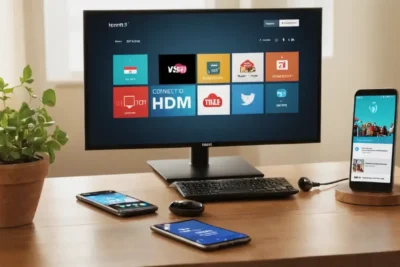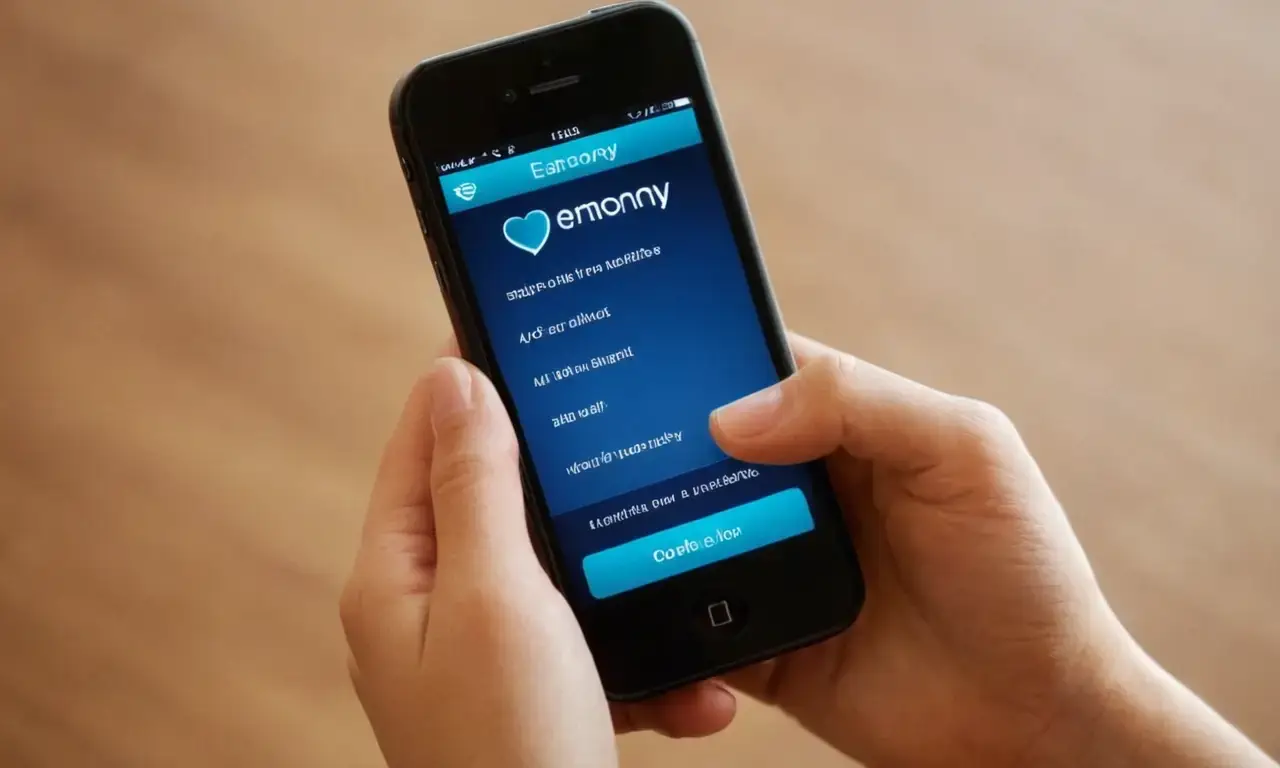
Mobile Dating Apps: Finding Love on Your Phone

Dating in the digital age has revolutionized how we connect and find love. Gone are the days of relying solely on chance encounters or blind dates; now, technology offers a plethora of platforms designed to facilitate romantic connections. Among these is the rise of mobile dating apps, which have become an integral part of modern relationships. These applications allow individuals to browse profiles, initiate conversations, and even schedule virtual dates all from their smartphones.
This article delves into five popular mobile dating apps that cater to diverse relationship goals and preferences. We'll explore each app in detail, analyzing its unique features, target audience, and overall effectiveness. By the end of this guide, you'll have a comprehensive understanding of how these apps work and which one might be best suited for your individual needs and aspirations. Whether you're seeking casual dating or a serious relationship, we'll help you navigate the world of mobile dating with confidence.
Five Popular Mobile Dating Apps
Dating apps have become ubiquitous, offering convenient ways to connect with potential partners. However, not all apps are created equal. Some cater to specific demographics or relationship goals, while others prioritize casual encounters or long-term connections. Choosing the right app can significantly impact your dating experience. This section introduces five popular mobile dating apps, each with its unique features and target audience:
Match.com: A Longstanding Leader in Online Dating
Match.com is one of the oldest and most established online dating platforms, boasting a long history of helping people find love. While it offers both a web version and a dedicated mobile app, the app's interface is designed to be user-friendly and intuitive.Zoosk: Social Networking Meets Dating
Zoosk stands out for its unique approach that blends social networking with dating. The app utilizes "behavioral matchmaking," which analyzes your online activity and suggests matches based on shared interests and behaviors. This feature helps users connect with individuals who share similar values and hobbies, potentially leading to more meaningful connections.eHarmony: Compatibility Through Questionnaires
eHarmony is renowned for its emphasis on compatibility through extensive questionnaires. The app asks detailed questions about your personality, values, and relationship goals, allowing it to create a personalized profile that matches you with potential partners who share similar aspirations. This approach prioritizes long-term relationships over casual dating.Tinder: Location-Based Connections
Tinder is one of the most popular location-based dating apps, known for its swipe-based matching system. Users can browse profiles and swipe left or right to indicate their interest in a potential match. This simple yet effective approach has made Tinder a global phenomenon, particularly among younger generations seeking casual encounters.Bumble: Empowering Women in Dating
Bumble takes a unique stance on dating by empowering women to initiate conversations. When a woman matches with a man, she has 24 hours to message before the match expires. This feature encourages women to take control of the conversation and fosters a more respectful and balanced approach to online dating.
Match.com: A Classic Choice for Romance
Match.com is a long-standing online dating platform that offers both a web version and a dedicated mobile app. The app's interface is designed to be user-friendly, allowing users to easily browse profiles, send messages, and manage their matches.
Key Features:
* Extensive Profile Creation: Match.com encourages detailed profile creation, enabling users to share information about their interests, values, and relationship goals. This comprehensive approach helps the app match individuals with compatible personalities and aspirations.
* Matching Algorithm: The app utilizes a sophisticated matching algorithm that considers various factors like shared interests, location, and relationship preferences. This ensures that users are matched with potential partners who align with their individual needs.
* Communication Tools: Match.com offers various communication tools, including messaging, video calls, and virtual dates, allowing users to connect in meaningful ways. These features facilitate deeper conversations and help build stronger connections.
Pros:
* Long-standing reputation for successful matches
* Detailed profile creation encourages compatibility
* Robust matching algorithm ensures relevant matches
* Variety of communication tools enhance connection
Cons:
* Subscription fees may be costly for some users
* Matching process can take time depending on user activity
Zoosk is a dating app that blends social networking with dating. Its unique approach utilizes "behavioral matchmaking," which analyzes your online behavior and suggests matches based on shared interests and activities. This feature helps users connect with individuals who share similar hobbies, values, and lifestyles, potentially leading to more meaningful connections.
Key Features:
* Behavioral Matching: Zoosk's algorithm analyzes your online activity across various platforms, including social media, to suggest potential matches based on shared interests. This approach prioritizes compatibility beyond basic demographics.
* Extensive Profile Creation: Users are encouraged to create detailed profiles that go beyond basic information. Sharing hobbies, interests, and values helps the app match individuals with compatible personalities and aspirations.
* Messaging Features: Zoosk offers various messaging features, including video calls and virtual dates, allowing users to connect in more engaging ways. These features help foster deeper conversations and build stronger relationships.
Pros:
* Unique behavioral matchmaking system for enhanced compatibility
* Detailed profile creation encourages meaningful connections
* Variety of communication tools facilitate deeper interactions
* Free version available with limited features
Cons:
* Requires active engagement to maximize matching success
* Some users find the app's interface less intuitive than competitors
eHarmony: Compatibility Through Questionnaires

eHarmony is renowned for its focus on compatibility through extensive questionnaires. The app asks detailed questions about your personality, values, and relationship goals, allowing it to create a personalized profile that matches you with potential partners who share similar aspirations. This approach prioritizes long-term relationships over casual dating.
Key Features:
* Detailed Compatibility Questionnaire: eHarmony's questionnaire is one of the most comprehensive in the online dating world. It covers various aspects of your personality, values, and relationship goals, providing a detailed foundation for matching.
* Relationship Goals Assessment: The app helps users define their relationship aspirations by asking about desired timelines, commitment levels, and future plans. This information ensures that matches align with each other's expectations.
* Personalized Matching Algorithm: eHarmony utilizes its extensive questionnaire data to create personalized profiles that match individuals based on compatibility factors. This approach prioritizes long-term relationships over casual encounters.
Pros:
* Highly detailed questionnaires for accurate matching
* Focuses on compatibility and long-term relationships
* Personalized profile creation enhances connection potential
* Strong reputation for successful matches
Cons:
* Time-consuming questionnaire process may deter some users
* Subscription fees may be costly for those seeking a free experience
Tinder and Bumble: Location-Based Connections
Tinder and Bumble are two of the most popular location-based dating apps, known for their swipe-based matching system. Users can browse profiles and swipe left or right to indicate their interest in a potential match. This simple yet effective approach has made Tinder a global phenomenon, particularly among younger generations seeking casual encounters.
Key Features:
* Swipe-Based Matching System: Both Tinder and Bumble utilize a swipe-based matching system where users swipe left or right on profiles to indicate their level of interest. This quick and easy method allows for efficient browsing and connection.
* Location-Based Matching: These apps leverage your location data to suggest potential matches within your area. This feature helps users connect with individuals who are geographically close, making it easier to arrange in-person dates.
* Communication Features: Both apps offer various communication features, including messaging, video calls, and virtual dates. These tools allow users to connect in meaningful ways beyond just swiping.
Pros:
* Easy-to-use swipe-based matching system for quick connections
* Location-based matching facilitates meeting potential partners nearby
* Variety of communication features enhance connection depth
* Large user base ensures a diverse pool of potential matches
Bumble: Empowering Women in Dating
Bumble takes a unique stance on dating by empowering women to initiate conversations. When a woman matches with a man, she has 24 hours to message before the match expires. This feature encourages women to take control of the conversation and fosters a more respectful and balanced approach to online dating.
Key Features:
* Initiation Power: Bumble empowers women by allowing them to initiate conversations after matching with a man. This shift in power dynamics promotes equality and respect within the dating process.
* Focus on Female Empowerment: The app's core philosophy centers around empowering women to take charge of their dating experience. This approach encourages confidence and autonomy in online interactions.
* Diverse Communication Tools: Bumble offers various communication tools, including messaging, video calls, and virtual dates. These features allow users to connect in meaningful ways beyond just text-based conversations.
Pros:
* Promotes gender equality by empowering women to initiate contact
* Variety of communication features enhance connection depth
* Focus on respectful interactions fosters a positive dating experience
Conclusion: Choosing the Right App for You
Each app offers unique features and benefits, catering to different preferences and relationship goals. Whether you're seeking long-term relationships or casual encounters, there's an app out there that aligns with your needs. Experimenting with different platforms can help you discover which one best suits your dating style and aspirations.
Leave a Reply





Related Links